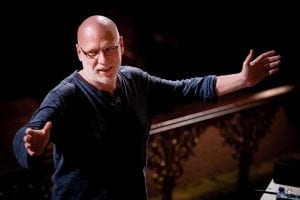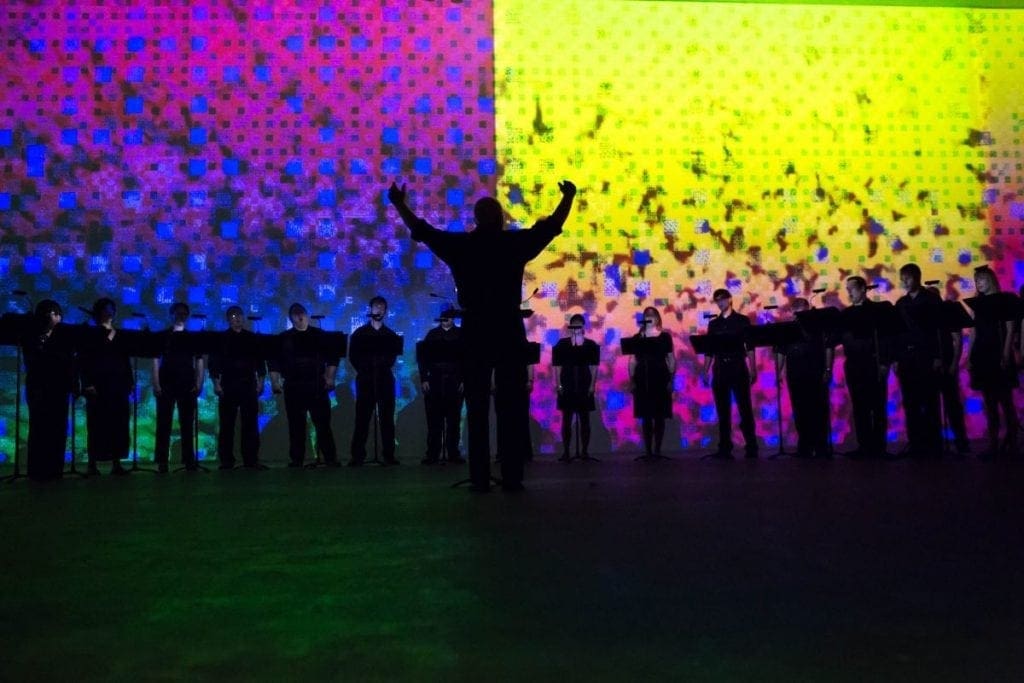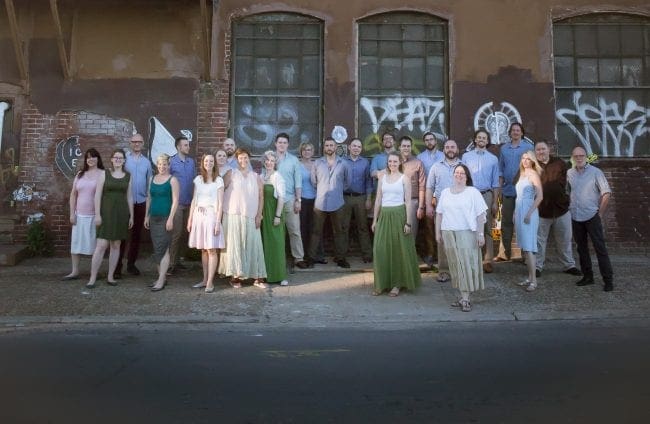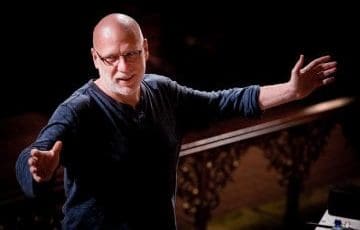Of Arms and the Man They Sing: Interview with Donald Nally
The artistic director of contemporary choral group The Crossing, Donald Nally has served as chorus master at the Lyric Opera of Chicago, Welsh National Opera, Opera Philadelphia, and for many seasons at the Spoleto Festival in Italy. He’s been music director of Cincinnati’s Vocal Arts Ensemble, chorus master at The Chicago Bach Project, and guest conductor throughout Europe and the United States, most notably with the Grant Park Symphony Chorus, the Philharmonia Chorus (London), the Santa Fe Desert Chorale, and the Latvian State Choir (Riga). Along with The Crossing, he won the 2018 Grammy Award for Best Choral Performance with Gavin Bryars’ The Fifth Century.
 This Fringe, Nally and The Crossing bring their singular choral aesthetic to the Fringe for one-night only, in a new program featuring a world premiere by composer Ted Hearne. Nally spoke to FringeArts about Of Arms and the Man.
This Fringe, Nally and The Crossing bring their singular choral aesthetic to the Fringe for one-night only, in a new program featuring a world premiere by composer Ted Hearne. Nally spoke to FringeArts about Of Arms and the Man.
FringeArts: What inspired the use of the Virgil quote as the title? Do you remember where you were when that idea came about?
Donald Nally: The Park Avenue Armory asked me to develop a program for their ornate historic reception rooms. Being the Armory, I got thinking about how the military has changed since those rooms were built; how it was a point of honor for the aristocracy that today mostly avoids it at all cost. So here are these beautiful rooms and they are a kind of monument to what we actually do in war: rich older people throw young people at a problem….So, we sing, and we do so about arms and about people: “Of arms and the man I sing.” And, it’s a journey, so the first line of the Aeneid captures the whole thing well. I liked the program so much I wanted to bring it to the Fringe because you don’t need elegant 19th-century rooms to ask these kinds of questions: life, war, wealth, death, purpose. In fact, the clarity of FringeArts Theater is going to be a great environment for this musical discussion.
FringeArts: What themes or qualities unite the pieces in this program?
Donald Nally: The concert takes a look at life and war and life during war from a number of angles. Some of it is national pride, some of it is grief, some of it is anger. Of course, I do not know quite what Ted’s new piece will be, but it’s going to fit into this overall theme of how we agree or disagree across nations and continents and what we’re actually doing when we act on those alliances or arguments.
FringeArts: Where does the program fit within The Crossing’s larger story and mission?
Donald Nally: We keep on keeping on with the topic of how we live our lives through the stories being told by composers; and, in doing so, we keep asking questions about what our art has to do with any of that? How do we present a work, what we do with our Voice, how do we combine all this in observing The Other? So, the stories on this choral recital reflect directly these questions.
FringeArts: How did you select and order the compositions and performers in the program? What were some criteria for your decisions?
Donald Nally: We were aiming for a recital format for this concert, so the works are perhaps a bit shorter than our usual shows, and therefore thread together by cello interludes – they carry you on the journey. I wanted to ask questions for which there are no easy answers. Maybe no answers at all.
Our singers are more or less the same 24 singers that are The Crossing. And the cellos I’ve worked with many times as well.
FringeArts: What do audiences find most surprising about a performance of The Crossing?
Donald Nally: I don’t think I’m in a position to answer this. I’ve never been an audience member at The Crossing. I think people like that we take risks? And that they are never sure what they’re going to hear because a lot of the music hasn’t been heard before – or at least hasn’t been recorded. So, there’s something of an event in that, which I personally love. A certain kind of energy about listening that is very gratifying for all of us.




